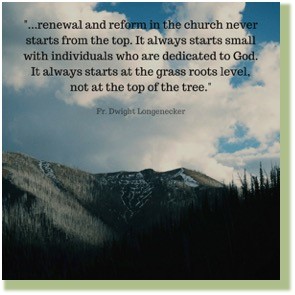I have found the Listening and Dialogue process to be a very powerful tool, as it has given people a safe place to share their story, based on a theme that emerges from responding to the question:
What do you think God is asking of us in Australia at this time?
We are invited to listen to what the Spirit is saying, and because each small group is made up of different people, from different locations, then the responses generated are varied, and consequently the theme that is chosen for the sharing of stories is different from group to group. I have been amazed with what emerges and the deep sharing, listening and respect that has flowed within each group. I am most grateful to those who have entered into, and trusted the process.
A couple of weeks ago I came across the following profound words from Richard Rohr’s Daily Meditation:
I don’t think the important thing is to be certain about answers nearly as much as being serious about the questions. When we hold spiritual questions, we meet and reckon with our contradictions, with our own dilemmas; and we invariably arrive at a turning point where we either evade God or meet God. Mere answers close down the necessary struggle too quickly, too glibly, and too easily.
When we hang on the horns of dilemmas with Christ—between perfect consistency and necessary contradictions—we find ourselves in the unique place I call “liminal space.” Reality has a cruciform shape to it then—and we are taught best at the intersection of order and disorder, where God alone can make sense out of the situation and we must surrender. All real transformation of persons takes place when we’re inside of such liminal space - with plenty of questions that are open to God and grace and growth.

This has been the grace and blessing of each of our sessions. We have not been seeking answers to the question posed, but turning points to share with the Plenary Council response team. The liminal space is not comfortable or simple, it can be messy and not many people wish to spend too long there. It is human nature to seek our rational answers and to solve the perceived problem. The Plenary Council process invites us to sit with the contradictions and the intersection of order and disorder. I believe it is calling each of us to transformation.
I don’t see the wisdom in sharing with you the themes chosen for the Listening and Dialogue sessions I have witnessed, because I do not wish to influence the breaking open of the process right across our diocese. However, I am conscious that during these weeks I have heard myself singing Michael Jackson’s song – Heal the World.
Heal the world,
make it a better place,
For you and for me and the entire human race.
……make it a better place for you and for me.
The centrality of Jesus and our relationship with him, the core of our mission, has also been expressed in many of the sharing sessions, with passion and commitment. The call to be mature disciples and to follow Jesus has also surfaced in many responses. At some stage the words, ‘a powerhouse of action’ were used regarding our need to respond to the local needs within our communities, while linking it to our faith.
This aspect was linked to the song from Godspell:
Day by day, day by day,
To see thee more clearly,
Love thee more dearly,
Follow thee more nearly,
Day by Day
 Sacred moments have been encountered by using the method of sharing stories related to a theme. On a few occasions people have expressed our real need for prayer. In some instances, there has been distress and tears as people have shared the depth of emotion that accompanies their story.
Sacred moments have been encountered by using the method of sharing stories related to a theme. On a few occasions people have expressed our real need for prayer. In some instances, there has been distress and tears as people have shared the depth of emotion that accompanies their story.
I am reminded in this process of Pope Francis’ words about the art of accompaniment, in which he reminds us to be a church capable of walking at people's sides... which accompanies them on their journey. Ordained ministers and pastoral care workers are called to make present the fragrance of Christ’s closeness and his personal gaze.
We read in No. 169 of Pope Francis’ Apostolic Exhortation of Evangelii Gaudium:
The Church will have to initiate everyone—priests, religious and laity—into this “art of accompaniment” which teaches us to remove our sandals before the sacred ground of the other (cf. Ex 3:5). The pace of this accompaniment must be steady and reassuring, reflecting our closeness and our compassionate gaze which also heals, liberates and encourages growth in the Christian life.
And in No. 171 he says:
Today more than ever we need men and women who, on the basis of their experience of accompanying others, are familiar with processes which call for prudence, understanding, patience and docility to the Spirit, so that they can protect the sheep from wolves who would scatter the flock. We need to practice the art of listening, which is more than simply hearing. Listening, in communication, is an openness of heart which makes possible that closeness without which genuine spiritual encounter cannot occur.
I am conscious that people are seeking renewal and reform, if not a revolution, and once again I came across the following quote which forms part of Jonathan Doyle’s Going Deeper Daily Motivation.

I sit on this side of the privileged role we have had in going out and encountering people through the Listening and Dialogue process. I find myself wishing to implore people not to be in too much of a hurry to seek the answers they so much desire, but to ‘Listen to what the Spirit is saying’, by patient waiting, accompaniment and prayer.
Thank you to those who have come along and given so generously of themselves. We have been blessed to have experienced great welcome and hospitality in the parishes and schools we have visited. There is indeed good energy around the possibilities and hope from this Plenary/Synod process. Let’s continue to heed the invitation to be involved.